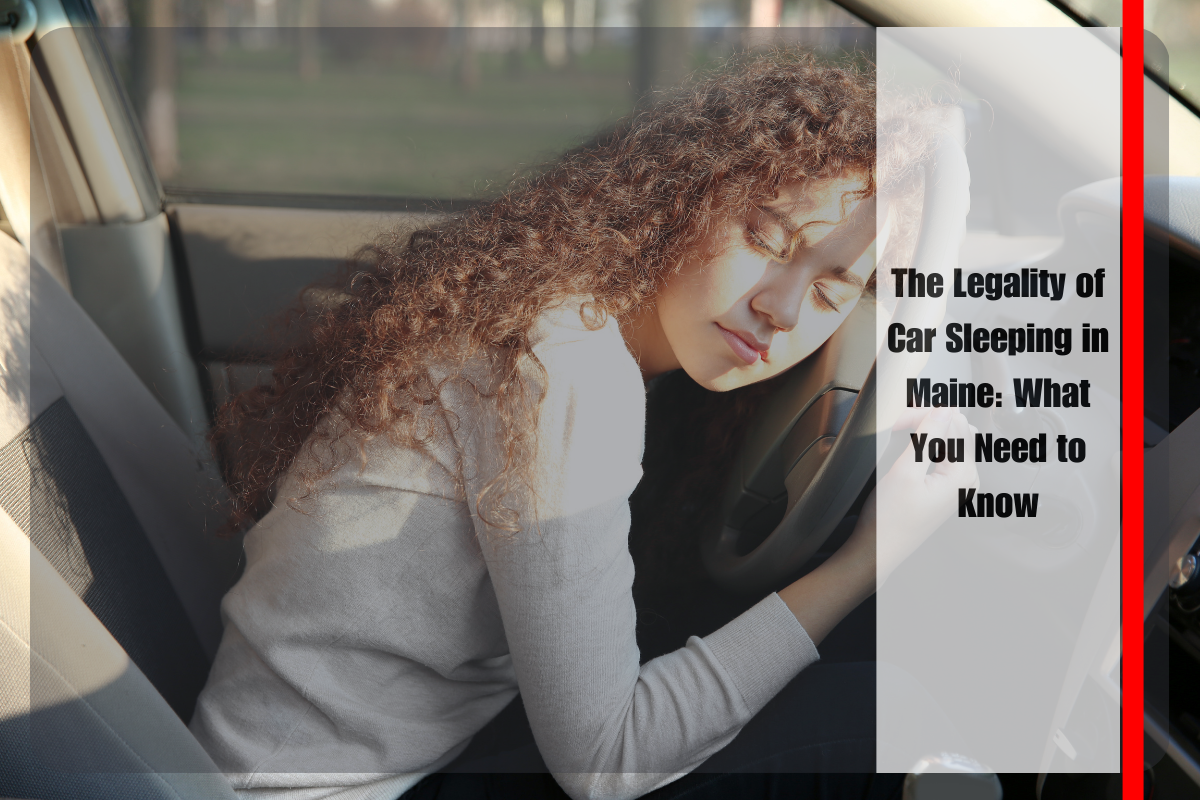In Maine, it is generally not illegal to sleep in your car, but this comes with specific restrictions and conditions. Travelers often resort to sleeping in their vehicles due to the size of the state, the unpredictability of lodging availability, or cost concerns, especially during busy seasons.
According to Maine regulations and expert interpretations, designated rest areas managed by the Maine Department of Transportation are typically open 24 hours, allowing for parking and resting, including sleeping in vehicles. However, drivers must ensure the vehicle is parked safely, usually at least 10 feet away from other vehicles and clearly visible to oncoming traffic.
Sleeping in cars is deemed a practical measure to prevent drowsy driving and improve road safety, and the state prefers drivers rest inside their vehicles over more dangerous alternatives such as sleeping outdoors.
Despite the general allowance, several restrictions apply. For instance, sleeping in vehicles is prohibited in park-and-ride lots along Maine Turnpike and Interstate-295, as these lots are designated for commuter use only. Similarly, most Maine state parks forbid overnight sleeping in standard vehicles, limiting such usage to RVs and campers to reduce nuisance factors like light and noise. Private property owners may also restrict sleeping in vehicles on their premises, and staying overnight without permission could lead to trespassing charges. Additionally, many municipalities and cities within Maine have local ordinances that may restrict or regulate sleeping in cars, particularly on public roads and lots. Therefore, it is essential to check specific city or town regulations before deciding to sleep in a vehicle.
Maine’s laws also address safety and location considerations. Sleeping on limited-access highways or on prohibited areas such as traffic lanes, bridges, or shoulders is illegal. Where overnight parking is approved, notifying state police may be required, especially on state-owned lots. For example, in Augusta, overnight parking on state property requires prior permission from Capitol Police. Various stores with large parking lots, such as L.L.Bean in Freeport, may allow overnight stays in RVs or campers in designated areas, but it is prudent to look for local signage to avoid penalties. There are no statewide laws limiting the duration of stays at rest areas, but some rest areas may post signs forbidding overnight parking, so travelers should check conditions in advance.
Overall, while sleeping in a car in Maine is legal under many circumstances, it is essential to adhere to local laws, avoid private property without permission, and choose appropriate locations such as official rest areas or designated spots. Checking city ordinances, road signage, and state police requirements can help avoid fines or legal issues. This legal framework reflects Maine’s balance between traveler convenience and public safety concerns, providing flexibility for those who need to sleep in their vehicles while maintaining order and safety on public lands and roads.
Sources
(https://wcyy.com/is-it-illegal-to-sleep-in-your-car-in-maine/)
(https://www.boondockersbible.com/learn/maine-rest-area-rules/)
(https://92moose.fm/it-it-illegal-to-sleep-in-your-car-in-maine/)
(http://www.maine.gov/dps/capitol-police/parking/overnight-parking)
(https://q1065.fm/illegal-sleep-in-car-maine-rest-stop/)












